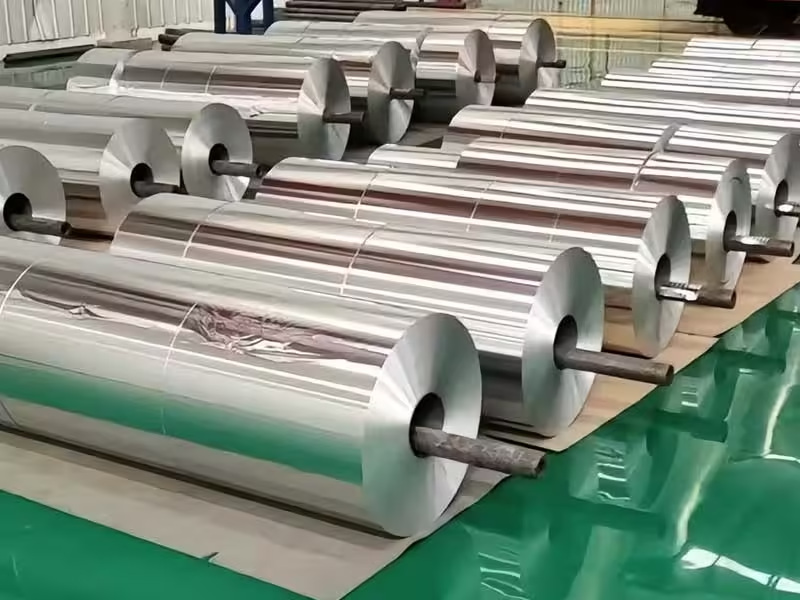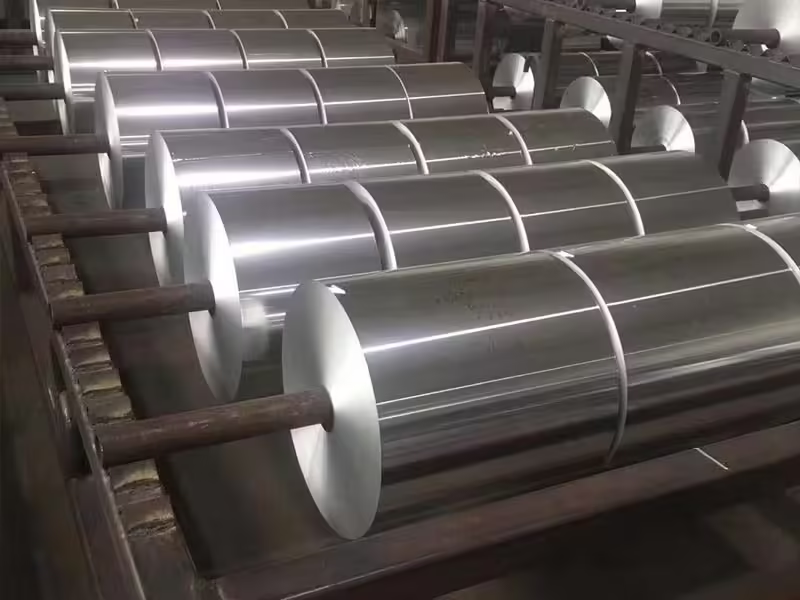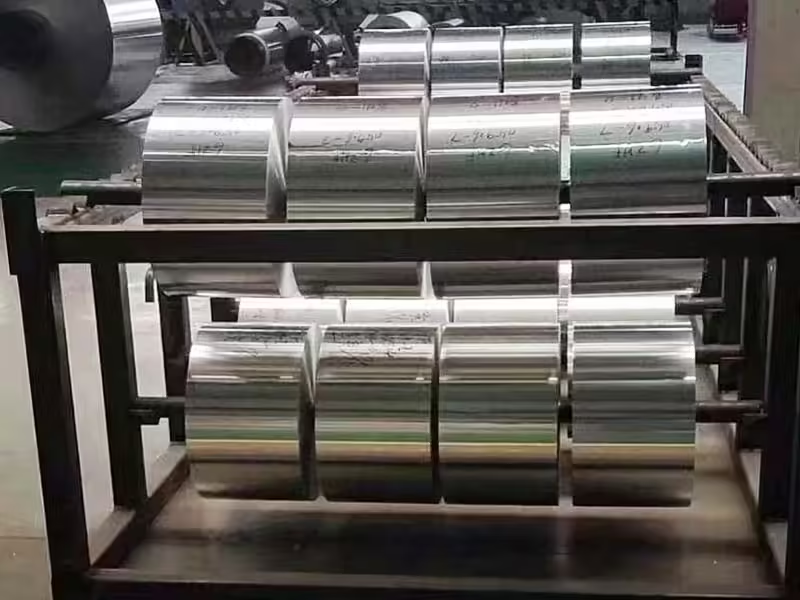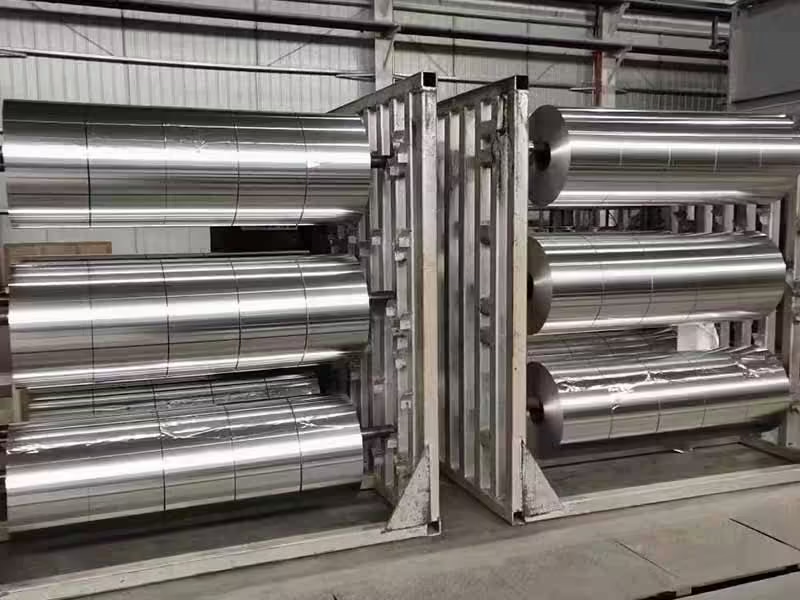내 블로그에 오신 것을 환영합니다!
본론으로 들어가기 전에, 제가 더 많은 정보를 공유하고, 커뮤니티와 소통하고, 업데이트를 게시하는 소셜 미디어 플랫폼에 함께해 주세요. 저와 소통하는 방법은 다음과 같습니다.
페이스북:https://www.facebook.com/profile.php?id=61571539990739
자, 이제 함께 여정을 시작해 볼까요? 여기 있는 내용이 통찰력 있고, 흥미롭고, 가치 있다고 느끼시기를 바랍니다.
목차
소개

알루미늄 호일을 떠올리면 남은 음식을 포장하거나 베이킹 트레이에 깔아두는 주방이 떠오를지도 모릅니다. 하지만 이 다재다능한 소재는 다양한 산업 분야에서 단열재로 중추적인 역할을 합니다. 독특한 특성을 지닌 알루미늄 호일은 에너지 효율 향상, 소음 공해 감소, 그리고 환경 요인으로부터 구조물 보호의 초석이 되었습니다.
이 블로그에서는 알루미늄 호일 금속이 이상적인 단열재로 돋보이는 이유와 그 특성, 용도, 이점을 살펴보겠습니다.
알루미늄 호일 금속의 절연 특성 이해
높은 열 반사율
알루미늄 호일 금속의 두드러진 특징 중 하나는 복사열을 반사하는 능력입니다. 최대 95%의 반사율로 열을 효과적으로 반사시켜 열 전달을 최소화하고 열 효율을 향상시킵니다.
낮은 방사율
방사율은 재료가 흡수한 열을 방출하는 능력을 나타냅니다. 알루미늄 호일 금속은 방사율이 낮아 열을 쉽게 방출하지 않아 효과적인 단열재로서의 역할을 더욱 공고히 합니다.
장벽 속성
알루미늄 호일 금속은 단열 효과 외에도 습기, 공기, 빛을 차단하는 장벽 역할을 합니다. 이러한 불투과성 덕분에 단열된 공간은 외부 환경 요인의 영향을 받지 않고 원하는 내부 환경을 유지합니다.
의 응용 프로그램 알루미늄 호일 절연체의 금속


건축 및 건설
건설 업계에서는 알루미늄 호일 금속을 벽, 지붕, 바닥에 단열재로 흔히 사용합니다. 알루미늄 호일의 반사 특성은 실내 온도를 유지하는 데 도움이 되어 과도한 난방이나 냉방의 필요성을 줄여줍니다.
HVAC 시스템
난방, 환기 및 공조 시스템은 알루미늄 호일 금속의 단열 성능을 활용합니다. 덕트와 파이프를 감싸 열 손실이나 획득을 최소화하여 효율적인 시스템 성능을 보장합니다.
자동차 산업
자동차에서는 알루미늄 호일 금속이 부품의 단열에 사용되어 열로부터 부품을 보호하고 최적의 성능을 보장합니다. 가벼워서 무게가 크게 늘어나지 않아 자동차 부품에 이상적입니다.
항공우주 응용 분야
항공우주 산업, 특히 온도 조절이 중요한 우주선의 단열재로 알루미늄 호일 금속을 사용합니다. 열을 반사하고 극한의 온도에도 견딜 수 있는 알루미늄 호일은 필수적인 소재입니다.
식품 및 제약 포장
알루미늄 호일은 금속의 차단 특성으로 인해 부패하기 쉬운 제품의 포장에 이상적입니다. 습기와 빛이 내용물에 영향을 미치지 않도록 하여 신선도와 효능을 보장합니다.
절연체 내 알루미늄 호일 금속의 비교 분석
| 재산 | 혜택 | 애플리케이션 |
|---|---|---|
| 높은 반사율 | 최대 95%의 복사열을 반사합니다. | 건물 단열, HVAC 시스템 |
| 낮은 방사율 | 열 방출을 최소화합니다 | 항공우주, 자동차 부품 |
| 수분 장벽 | 습기 침투 방지 | 식품 포장재, 건축자재 |
| 가벼움 | 취급 및 설치가 간편합니다 | 자동차, 건설 |
| 내구성 | 부식 및 열화에 강함 | 장기 단열 솔루션 |
| 재활용성 | 환경 친화적 | 지속 가능한 건축 관행 |
단열재로 알루미늄 호일 금속을 사용하는 장점

에너지 효율
알루미늄 호일 금속은 복사열을 반사하므로 인공적인 난방이나 냉방의 필요성이 줄어들어 상당한 에너지 절감 효과가 있습니다.
비용 효율적
내구성과 효율성 덕분에 교체와 유지관리가 줄어들어 시간이 지남에 따라 비용이 절감됩니다.
다재
주택에서 우주선까지 알루미늄 호일 금속은 적응성이 뛰어나 광범위한 용도에 적합합니다.
환경 영향
재활용이 가능하므로 지속 가능한 관행에 부합하며 환경 발자국을 줄일 수 있습니다.
결론
알루미늄 호일 금속은 단열 분야에서 필수적인 소재로 입증되었습니다. 알루미늄 호일의 독특한 특성 조합은 열 조절, 습기 조절, 그리고 환경적 지속가능성이라는 다면적인 과제를 해결합니다. 산업계와 개인 모두 효율적이고 친환경적인 솔루션을 찾고 있는 지금, 알루미늄 호일 금속은 신뢰할 수 있는 선택으로 자리매김하고 있습니다.
자주 묻는 질문
알루미늄 호일 금속을 다른 단열재와 함께 사용할 수 있나요?
그렇습니다. 다른 재료를 보완하여 전반적인 단열 성능을 향상시키는 경우가 많습니다.
알루미늄 호일 금속은 실외 단열재로 적합합니까?
물론입니다. 습기와 부식에 강해 야외 사용에 이상적입니다.
알루미늄 호일 금속은 에너지 절약에 어떻게 기여합니까?
복사열을 반사함으로써 난방 및 냉방 시스템에 대한 의존도를 낮추고, 에너지 소비를 줄이는 효과가 있습니다.
알루미늄 호일 금속은 환경 친화적인가?
네, 재활용이 가능하며 지속 가능한 건축 방식에 기여합니다.
알루미늄 호일 금속의 두께가 절연 특성에 영향을 미칩니까?
두께는 내구성에 영향을 줄 수 있지만, 반사 및 차단 특성은 다양한 두께에서도 효과적입니다.

